- Home
- Diana Palmer
Diamond Spur Page 5
Diamond Spur Read online
Page 5
She lifted her eyebrows. “It will be the most expensive steak you’ve ever served.”
He grinned. “Nothing’s too good for my men.” He tipped his hat pleasantly and walked past her.
“You’ll rot in prison!” Sheila was yelling from the front porch, her apron waving in the breeze. “Kate, for God’s sake, stop him!”
“Sure. Have you got another gun and some bullets?” Kate asked.
Sheila threw up her hands and mumbled her way back into the house, slamming the door furiously.
Kate mounted Kip with a heavy sigh and rode back down the driveway, pushing the incident in the field to the back of her mind until she had enough time to deal with it.
She hoped Mr. Tanner had his bull insured. It was a pity he hadn’t listened when Jason asked him not to put that bull next to heifers in heat with only a double strand barbed wire fence between. It was Tanner’s fence, and Tanner was a retired department store manager who’d moved here from back East and decided to raise cattle in his retirement years. Jason had even offered to reinforce the fence and Mr. Tanner had refused to let him. Now he was going to pay the price.
Kate began to whistle as she turned Kip down the road toward home. It would be rather interesting to taste a purebred black Angus bull with a hundred thousand dollar price tag. She hoped Sheriff Gomez would let Jason have a plate of it in his jail cell.
Chapter Three
Kate had just taken a taco casserole out of the oven and was putting the unmatched plates and cups and utensils on the supper table when her mother came in the door.
“Something smells good,” Mary Whittman sighed, as she kicked off her comfortable thick-soled shoes at the door. “Heavens, I’m tired. I can’t remember doing so many bundles in one day.”
“If you made production, you shouldn’t complain,” Kate grinned.
“I made over a hundred percent, in fact,” her mother replied, “so I expect I’ll get a better check this week than last. By the way, Mr. Rogers stopped me on the way out and said for you to come in tomorrow.”
“Have they got some serging for me?” she asked.
“They probably will have. We got some new cuts in today for the pants line. But what Mr. Rogers wants to see you about is those designs you left with him,” Mary said, her green eyes twinkling. “He’s been calling people all week to stop by and look at them. I think he’s made a decision.”
Kate stopped breathing. “You think they might be interested in using one?”
“Definitely. There’s been a rumor about a new line of sportswear, and he loves your Indian designs, especially those bold turquoise colors you’ve used,” Mary added. “It seems that one of the buyers found a market forecast that predicted blue was going to be big next year. And your styles went over in a big way. I’m just guessing, honey, and I don’t want to get your hopes up too high. But, I have a good feeling about this.”
“I hope you’re right. Oh, I hope you are,” Kate laughed. “Mama, I’d be over the moon if they used anything of mine!”
“Well, don’t mention that I said anything to you. I overheard Mr. Rogers asking Gwen about some accessories.” She flopped down on the couch, her slender body slumping. Her thin, graying, dark hair was limp, and there were bits of cloth sticking to her brown stretch pants and her brown and green over blouse. The pants had come from a garage sale—Mary had brought them home, practically new, for two dollars. The blouse was one that the ladies at the plant had given her for her birthday last month. The shoes had come from a sale at a local department store; they were a little loose, but Mary’s feet stayed swollen after walking around on the plant’s concrete floors all day, so that was kind of a fringe benefit. She was no fashion plate, but she was decently covered and for a bargain price.
Mary had handed down that instinct for financial conservation to her daughter. Kate had learned to shop for the best fabrics at the lowest prices, and most of her apparel she made herself, even her jeans. She hand-embroidered each pair on the pockets and hems, and had more sewing than she could do for other people producing them after-hours. That was one reason she’d gone to Mr. Rogers with her designs in the first place. She was getting more orders than she could fill, and not only for jeans. And thank God for the sewing machine Jason had given her last Christmas because the old one she’d been using would never have stood the strain.
Kate’s original skirt and blouse designs produced even more income. But not enough to pay the bills, keep up a car, and buy food. Her salary and her mother’s combined barely did that, even with the spare money Kate made sewing.
“I’ll get rich,” Kate promised. “Then we can both give up working in the plant and you can parade around in mink and diamonds.”
“I’m allergic to fur and I don’t like diamonds.” Mary grinned. “Give me a new rod and reel and some bass flies instead.”
“I’ll give you a lake stocked with bass, too.”
Mary closed her eyes with a weary smile. “You’re a good daughter.”
“Yes, I know. Uh, did you come home by way of the Tanner place?”
“Every day.”
“Hear any shots?” Kate asked innocently as she took a pan of green beans off the stove and set them on a cold burner.
Mary sat up. “Shots? Why would I?”
“Mr. Tanner’s bull got in with Jason’s cows. He went over that way with his Winchester.”
The older woman leaned forward to light a cigarette, ignoring Kate’s disapproving gaze. “I’ll die of something one day,” she said before her daughter could protest. “Turn on the fan and it won’t bother you. Jason took a gun after Henry Tanner?”
“After the bull. It was on his land.” Kate pursed her lips. “We’ve been invited to a steak dinner. Guess who’s providing the steak.”
“Mr. Tanner, no doubt. Well, Jason’s attorneys have had a slack month, they need the business.”
“Mother!”
Mary studied her daughter curiously. “How do you know about all this?”
“Jason got hurt and they sent for me. I got him to the doctor and patched up, and the bull was discovered about the time I was getting ready to leave.” She shook her head as she poured iced tea into thick glasses, taking time to sip one so that it didn’t overflow. “Sheila was screaming her head off. It didn’t even slow him down.”
“That’s nothing new. Poor Sheila. Poor Mr. Tanner.” She stood up and stretched. “I wonder what Jason’s going to do when you go off to be a famous designer?” she wondered aloud. “I expect he’ll die from lack of medical care because everybody else around San Frio is scared to death of him.”
“You could take over for me,” Kate teased.
Mary’s eyes bulged. “Not me. I like living. I hope you didn’t put too much cumin in that taco casserole.”
“Only half a cup, isn’t that what you put?” Kate asked with a blank smile.
“If you poison me, I’ll tell Mr. Rogers to throw your designs out the window.”
“Okay, I’ll behave. Sit down and eat something. You’re going to blow away.”
“I’m a good size. I can walk through a harp sideways.”
Kate turned away to flip the switch on the old rusted table fan that her father had bought when she was just a baby. There was no money for a new one, not even a cheap new one. But money, Kate reasoned, had never made anybody happy by itself. She’d rather have her mother and friends like Jason any day than a bankroll.
“You’re very quiet tonight,” Mary remarked as they finished off the small casserole and homemade Mexican corn-bread Kate had cooked with it.
Kate linked her hands around her coffee cup. “Well, I’ve been thinking.”
“About what?”
About Jason, she could have said, and that he almost kissed her today. But that was a memory too precious to share, even with her mother.
Smiling, she tilted the cup and watched the ripples move with the overhead light that hung from the ceiling. The kitchen was worn, like the rest of the
house. The walls needed painting. They were a dirty unpleasant yellow, and the gold and green linoleum on the sloping floor was torn in places and cracked in others. The stove was almost as old as Kate, and the sink had stains that nothing would get out. Faded yellow curtains hung over the windows, their miserable condition reflecting the stains on the ceiling where a leaking roof had left its mark before its haphazard repair. The house was falling apart, and there was no money for maintenance. Kate wondered sometimes what she and Mary would do if the roof fell in or the floor gave way. She’d seen some winged ants just yesterday. If they were termites, even now the house could be under a death sentence. The only new thing in the place was the new zigzag sewing machine that Jason had given her last Christmas, and it was the first thing she’d have saved if the house had caught fire.
“I said, what are you thinking about?” Mary prodded as she flicked an ash into the cracked glass ashtray with Phoenix, Arizona in faded letters in its gray-caked center.
Kate looked up. “About if the house is going to fall around our ears.”
Mary’s thin shoulders lifted and fell. “It’s lasted fifty years already. I guess it’s got a few more in it. And we can always cry on Jason’s shoulder if things get desperate. God bless him, he’ll do something.”
“We shouldn’t depend on him too much, Mama,” Kate said, her tone hesitant.
“Why not? He doesn’t mind, honey.”
“I mind.”
Mary grimaced. “Katy, pride won’t satisfy hunger or fix leaking roofs.”
“I know that.” She sipped coffee. “But it’s not right, to always be asking him for things.”
“Did something happen today? Did the two of you argue?” Mary probed.
Kate laughed nervously. “When have Jason and I ever argued?”
That seemed to be a relief to the older woman. She smiled. “Silly thought, wasn’t it? It amazes me, the things he’ll let you get away with.”
“Like taking him to the doctor?” Kate smiled back. “He likes me.”
“You like him, too, don’t you?”
“Stop digging, Sherlock Holmes,” the younger woman said firmly and got up to wash the supper dishes. “You won’t find romance. I’m not Jason’s type. He’ll want a society girl who can organize business dinners and act sophisticated for his rich friends. I’m just his late foreman’s daughter and he feels sorry for me.”
“Rich men have married poor girls before,” Mary said doggedly. A match between Kate and Jason was the dream of her life, and the source of the only arguments she and Kate ever had. Mary had been poor since childhood. She wanted a way out of the rut, at least for Kate.
“I don’t want to marry Jason,” Kate replied. She ran water in the sink. It wasn’t the whole truth, but she didn’t dare confess to Mary that she was madly in love with their rich neighbor and would give her left arm to live with him. There was some truth in what she’d said about Jason’s future bride, anyway—that he’d want a society girl. She’d never thought about Jason getting married, but inevitably, he would. He’d want an heir for the Diamond Spur. And, although it hurt to admit it, a poor girl like Kate would never fit into his world.
“If only we could afford some fancy clothes for you,” Mary moaned. “I’m sure he’d noticed you if you had pretty things to wear. Not that these things you sew yourself aren’t pretty,” she was quick to add. She was proud of her daughter’s accomplishments, but some nice store-bought things would catch a rich man’s eye even better.
Mary couldn’t know that Jason had noticed Kate. Her eyes went dreamy as she relived that unexpected and exciting interlude in the field, felt his arm around her, felt the warm and vibrant urging of his hard mouth, his body. She was aware of a new, nagging hunger that made her restless, and hoped that she could hide it from her mother. The last thing in the world she needed was to have her ambitious mother pushing her at Jason. He might be her best friend, but he’d already said that he didn’t want commitment. Her mother could easily cost her his company forever by making it look as if Kate were trying to trap him into marriage.
“How about some dessert?” Kate hedged. “I made an apple pie.”
“Well, aren’t you the smart one? I’d love a slice. Make that two slices, I feel like living dangerously.”
Kate grinned and got down two saucers to put the pie in. Thank goodness for her mother’s appetite. It saved her from a modern Spanish inquisition.
The next morning, Kate rode into San Frio with her mother. She was wearing one of the outfits she’d designed herself—a simple, loose, sky blue blouse with set-in cap sleeves with lots of embroidery in Indian patterns on the square yoke and bodice and sleeves, and an ankle-length full circle skirt of chambray that echoed the blouse’s embroidery around the hem. She finished the outfit with simple suede fringed boots in a powder blue and a matching bag. Jason had given her those for Christmas. They weren’t new, but they looked it because Kate kept them for special occasions. She’d put her hair in braids and added big blue bows to each one, and her own natural grace and carriage gave the outfit a charm all its own.
“You look delightful,” Mary sighed as she parked the battered old blue Ford Galaxy outside the neat offices of Clayborn Manufacturing Company. Clayborn was the south Texas division of a national manufacturing company with headquarters in New York City.
Kate sighed as they got out of the car. She slammed the door twice to get the lock to catch. “Stupid car,” she muttered. “I hate it.”
“It gets us around,” Mary replied. “And it’s a long walk from the house to here.”
“Walking is healthy,” came the short reply. Kate gnawed her lower lip as Mary opened the door marked “employees only,” and was met immediately by the sound of sewing machines running and steam surging through pipes into the pressing department. The colors of the current cut were echoed down the rows of seamstresses in the pants department. Kate waved to two of the girls she sat near and followed Mary down the aisle toward the front office.
The plant was large. It had a shirts line and a pants line, a training room, a huge cutting room and warehouse, a pressing department and quality control department and mechanics who were kept busy making the old machines produce. It smelled of fabric and machine oil and thread, pleasant smells that Kate had grown accustomed to since graduation from high school. She’d worked in the plant that long.
The canteen was empty as they passed it, the long tables spotless, the machines standing waiting for break time. The lady who worked seconds was busy packing them up in brown cartons, and the floor lady over the pressing department threw up a hand as Mary and Kate went by.
The main offices had a payroll department, personnel office, a receptionist and the plant manager’s office. The assistant plant manager shared space next door. The cutting room had its own office, far down the hall, where the cuts were processed and records were kept of the coming and going of cloth. There was a quality control supervisor, who shared space with the pressing room supervisor, a storeroom where sewing supplies were kept, and a huge warehouse from which finished goods were shipped. The plant engineer had his own office, too, where he did time and motion studies and helped oversee the seamstresses on the shirt line.
Bundle boys and girls wandered around the floor, carrying stacks of cut garment pieces called bundles to the various seamstresses as each section of garment was quickly and efficiently finished and passed along to the next person and the next step to its completion.
Keith Rogers, the plant manager, was the person Kate wanted to see this morning.
“Hello, Kate,” he greeted her in the doorway, adding a cheerful hello to Mary, who paused just long enough to kiss Kate’s cheek before vanishing into the pants line where she worked.
“Good morning, Mr. Rogers,” Kate said, sounding and feeling breathless. She twisted her bag nervously in her slender hands. “Mama said you had some news for me.”
“Indeed I do. Jessie, bring that letter in, will you?” he called to
the slender blonde who handled the telephones. She smiled back and went to the filing cabinet beside her desk.
Kate stood in front of the desk. Jessie brought the letter, winked at Kate with twinkling green eyes, and went back out, closing the door behind her.
Mr. Rogers was tall and balding and wore glasses. He had a wife and three small children, and pictures of them adorned his desk. A diploma in textile engineering held pride of place on one wall, and an award for superior production caught the attention on another.
Mr. Rogers leaned back in his chair behind the desk with the letter in his hand. “I showed your designs to our regional vice president,” he explained to Kate, looking smug. “He felt just as I do about their potential. He went to the big boss, who also agreed. We want to contract with you to do a new line of women’s sportswear for our spring season.”
Kate was barely breathing. “Me?” she squeaked.
“You. These Indian designs are new and exciting, and our forecasters and buyers seem to share your feeling for blue and cream colors in the next year’s fashions. They also like this silhouette,” he added, picking up one of Kate’s sketches from the portfolio she’d left with him. It showed an outfit much like the one Kate had on, with a long full skirt and blouson top. “And denim looks strong for next year, too.”
He smiled at her fascination. She tried to speak, caught her breath, and tried again.
“Mr. Rogers, I’m just speechless,” she said finally.
“I’m glad you’re pleased. You’ve designed these with an eye to cost control, which pleases the money men, too. They’ll be easy to mass produce, they’ll be moderately priced, and we’ll show a good profit margin if they go well. Which,” he added, “we expect them to. Now. Sit down, Kate, and we’ll go over the details.”
She did sit. She needed to. He outlined the designs that Clayborn wanted to purchase, mentioning a price that to Kate sounded like a small fortune. And her first thought was that she and her mother would be able to afford a better car—maybe even one that was only eight years old or so, and that would seem new after driving the twenty-year-old Ford around for so long.

 A Cattleman's Honor
A Cattleman's Honor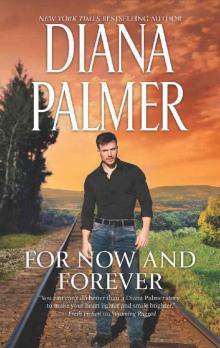 For Now and Forever
For Now and Forever Texas Proud and Circle of Gold
Texas Proud and Circle of Gold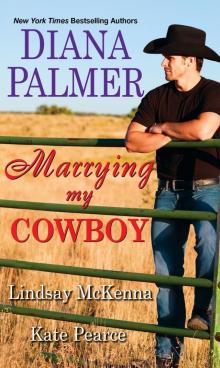 Marrying My Cowboy
Marrying My Cowboy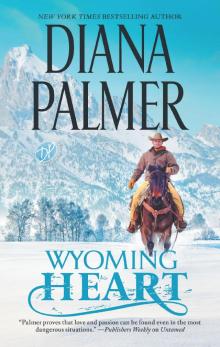 Wyoming Heart
Wyoming Heart Christmas Kisses with My Cowboy
Christmas Kisses with My Cowboy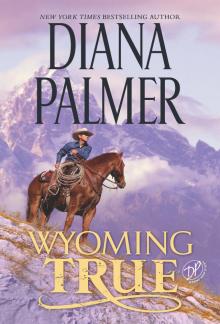 Wyoming True
Wyoming True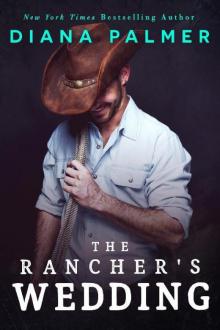 The Rancher's Wedding
The Rancher's Wedding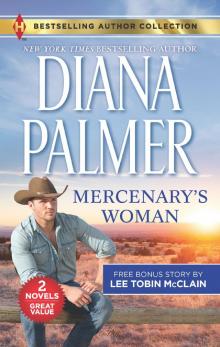 Mercenary's Woman ; Outlawed!
Mercenary's Woman ; Outlawed! Long, Tall Texans: Stanton ; Long, Tall Texans: Garon
Long, Tall Texans: Stanton ; Long, Tall Texans: Garon Lawless
Lawless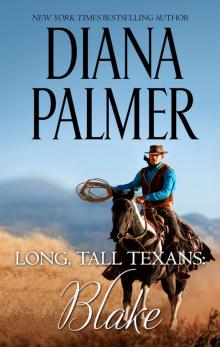 Blake
Blake Escapade
Escapade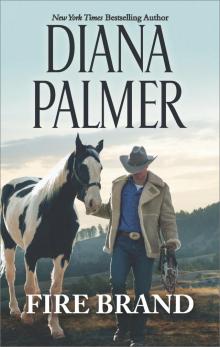 Fire Brand
Fire Brand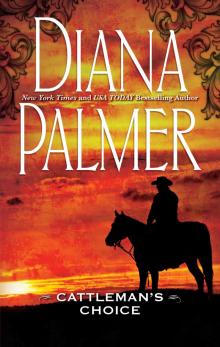 Cattleman's Choice
Cattleman's Choice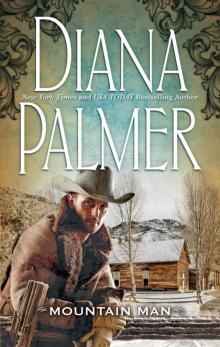 Mountain Man
Mountain Man Long, Tall and Tempted
Long, Tall and Tempted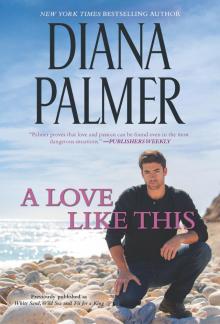 A Love Like This
A Love Like This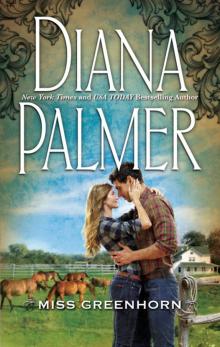 Miss Greenhorn
Miss Greenhorn Magnolia
Magnolia Lord of the Desert
Lord of the Desert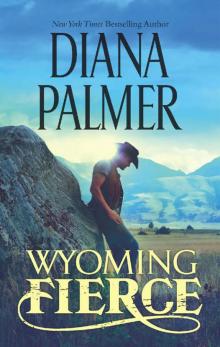 Wyoming Fierce
Wyoming Fierce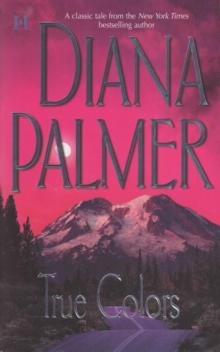 True Colors
True Colors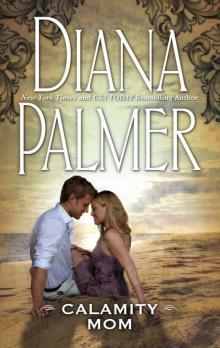 Calamity Mom
Calamity Mom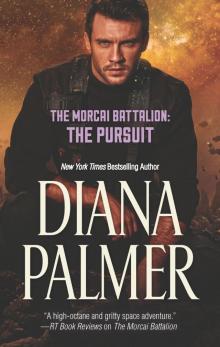 The Pursuit
The Pursuit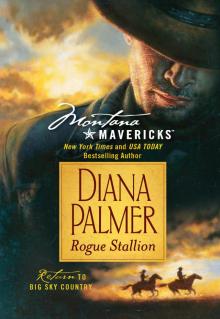 Rogue Stallion
Rogue Stallion Date with a Cowboy
Date with a Cowboy Heart of Winter
Heart of Winter Friends and Lovers
Friends and Lovers Love on Trial
Love on Trial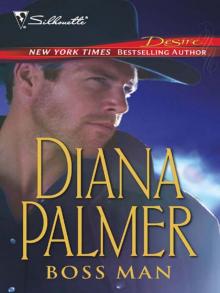 Boss Man
Boss Man Callaghan's Bride
Callaghan's Bride Before Sunrise
Before Sunrise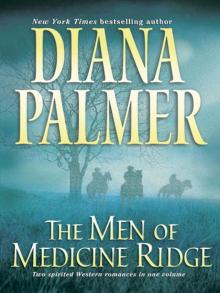 The Men of Medicine Ridge
The Men of Medicine Ridge Texas Proud
Texas Proud Wyoming Tough
Wyoming Tough Passion Flower
Passion Flower Maggie's Dad
Maggie's Dad Donavan
Donavan The Rancher & Heart of Stone
The Rancher & Heart of Stone Long, Tall Texans: Tom
Long, Tall Texans: Tom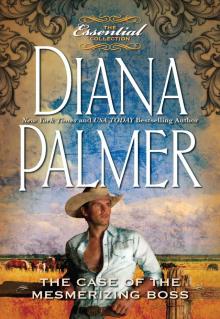 The Case of the Mesmerizing Boss
The Case of the Mesmerizing Boss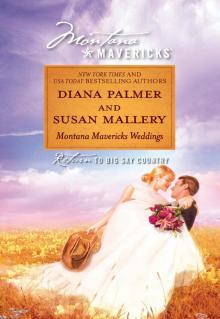 Montana Mavericks Weddings
Montana Mavericks Weddings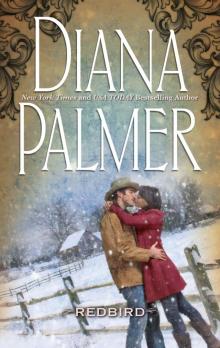 Redbird
Redbird Wyoming Strong
Wyoming Strong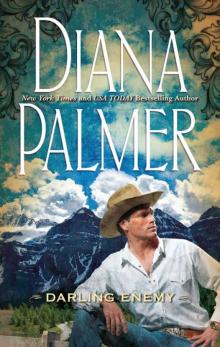 Darling Enemy
Darling Enemy Love by Proxy
Love by Proxy Coltrain's Proposal
Coltrain's Proposal The Best Is Yet to Come & Maternity Bride
The Best Is Yet to Come & Maternity Bride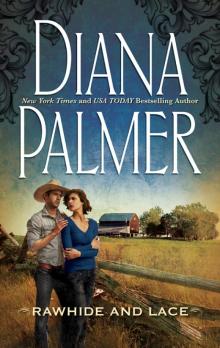 Rawhide and Lace
Rawhide and Lace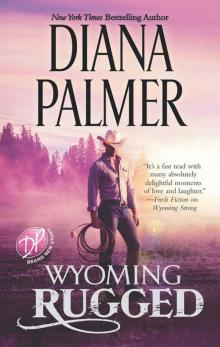 Wyoming Rugged
Wyoming Rugged Patient Nurse
Patient Nurse Undaunted
Undaunted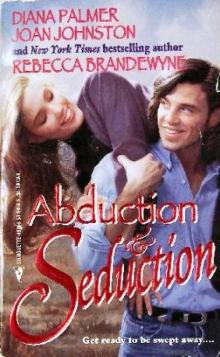 Long Tall Texans Series Book 13 - Redbird
Long Tall Texans Series Book 13 - Redbird Outsider
Outsider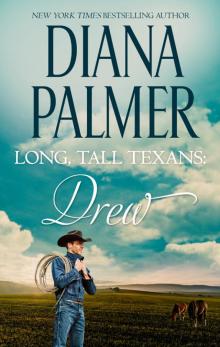 Long, Tall Texans: Drew
Long, Tall Texans: Drew Long, Tall Texans--Christopher
Long, Tall Texans--Christopher Merciless
Merciless A Match Made Under the Mistletoe
A Match Made Under the Mistletoe Evan
Evan Hunter
Hunter Now and Forever
Now and Forever Hard to Handle
Hard to Handle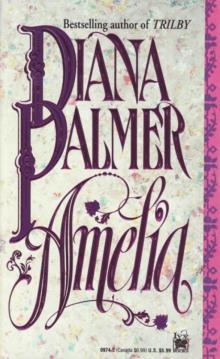 Amelia
Amelia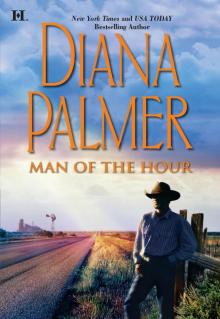 Man of the Hour
Man of the Hour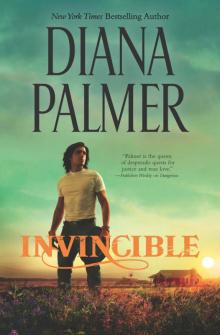 Invincible
Invincible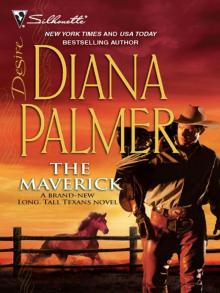 The Maverick
The Maverick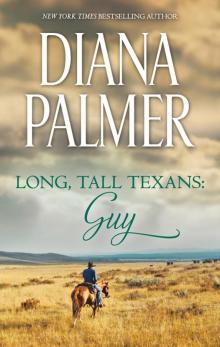 Long, Tall Texans--Guy
Long, Tall Texans--Guy Noelle
Noelle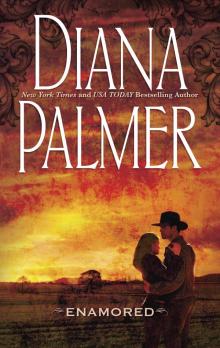 Enamored
Enamored The Best Is Yet to Come
The Best Is Yet to Come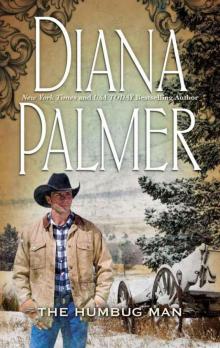 The Humbug Man
The Humbug Man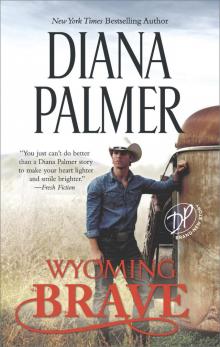 Wyoming Brave
Wyoming Brave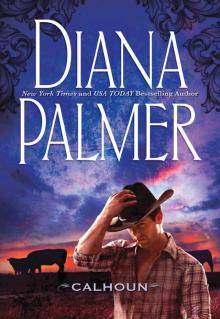 Calhoun
Calhoun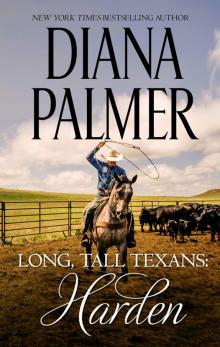 Long, Tall Texans--Harden
Long, Tall Texans--Harden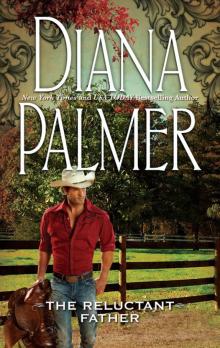 The Reluctant Father
The Reluctant Father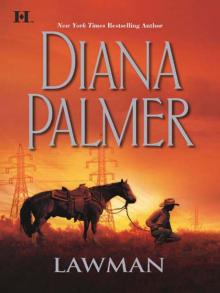 Lawman
Lawman Long, Tall Texans: Hank & Ultimate Cowboy ; Long, Tall Texans: Hank
Long, Tall Texans: Hank & Ultimate Cowboy ; Long, Tall Texans: Hank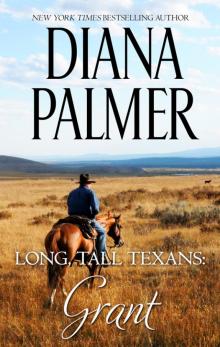 Grant
Grant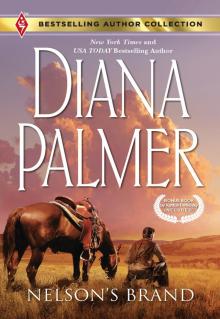 Nelson's Brand
Nelson's Brand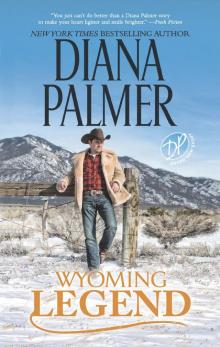 Wyoming Legend
Wyoming Legend Diamond Spur
Diamond Spur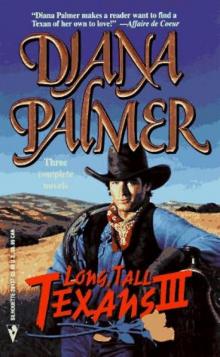 That Burke Man
That Burke Man Wyoming Bold (Mills & Boon M&B)
Wyoming Bold (Mills & Boon M&B) Heartless
Heartless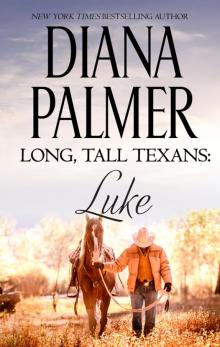 Long, Tall Texans--Luke
Long, Tall Texans--Luke To Have and to Hold
To Have and to Hold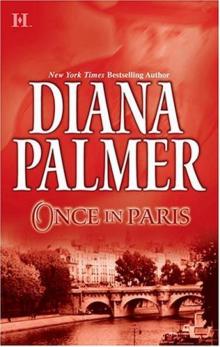 Once in Paris
Once in Paris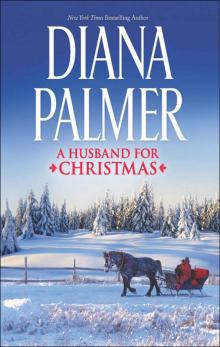 A Husband for Christmas: Snow KissesLionhearted
A Husband for Christmas: Snow KissesLionhearted Night Fever
Night Fever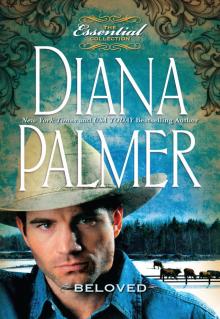 Beloved
Beloved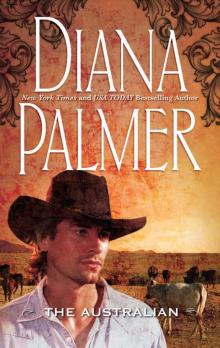 The Australian
The Australian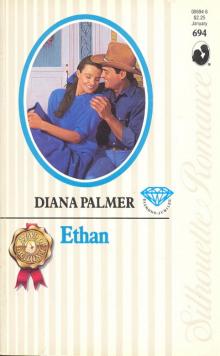 Ethan
Ethan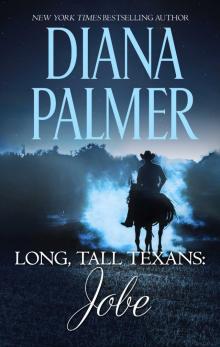 Long, Tall Texans: Jobe
Long, Tall Texans: Jobe Bound by Honor: Mercenary's WomanThe Winter Soldier
Bound by Honor: Mercenary's WomanThe Winter Soldier Tender Stranger
Tender Stranger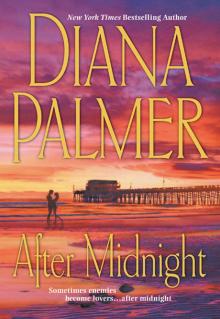 After Midnight
After Midnight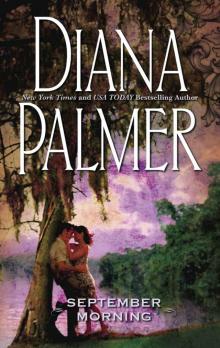 September Morning
September Morning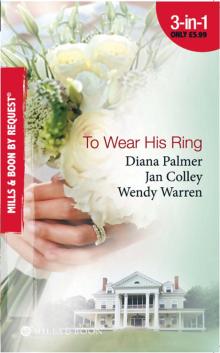 To Wear His Ring
To Wear His Ring Heartbreaker
Heartbreaker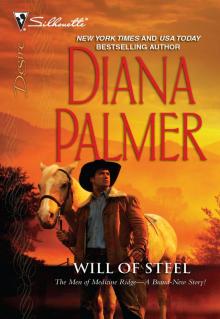 Will of Steel
Will of Steel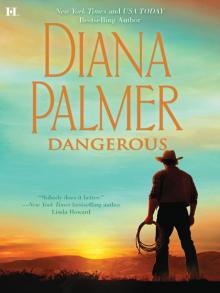 Dangerous
Dangerous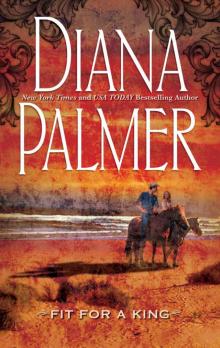 Fit for a King
Fit for a King Diamond in the Rough
Diamond in the Rough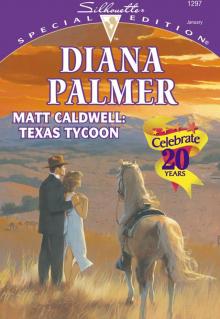 Matt Caldwell: Texas Tycoon
Matt Caldwell: Texas Tycoon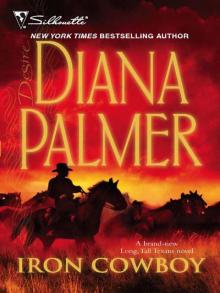 Iron Cowboy
Iron Cowboy Fire And Ice
Fire And Ice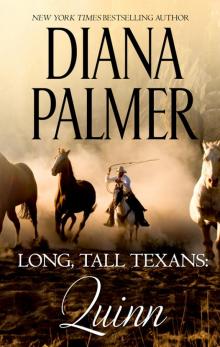 Long, Tall Texans--Quinn--A Single Dad Western Romance
Long, Tall Texans--Quinn--A Single Dad Western Romance Montana Mavericks, Books 1-4
Montana Mavericks, Books 1-4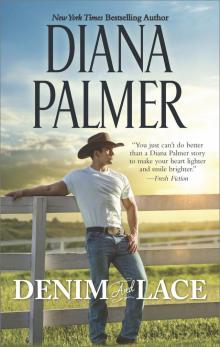 Denim and Lace
Denim and Lace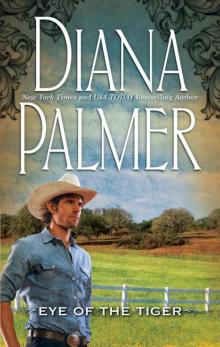 Eye of the Tiger
Eye of the Tiger The Princess Bride
The Princess Bride Long, Tall Texans: Rey ; Long, Tall Texans: Curtis ; A Man of Means ; Garden Cop
Long, Tall Texans: Rey ; Long, Tall Texans: Curtis ; A Man of Means ; Garden Cop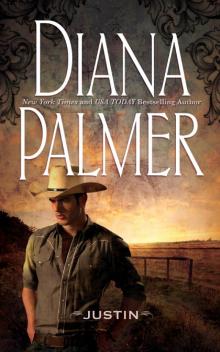 Justin
Justin Nora
Nora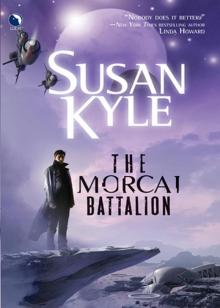 The Morcai Battalion
The Morcai Battalion Heart of Stone
Heart of Stone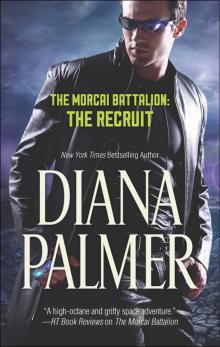 The Morcai Battalion: The Recruit
The Morcai Battalion: The Recruit To Love and Cherish
To Love and Cherish Invictus
Invictus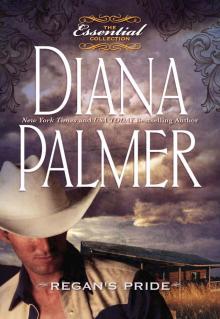 Regan's Pride
Regan's Pride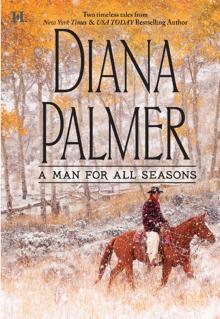 A Man for All Seasons
A Man for All Seasons Sweet Enemy
Sweet Enemy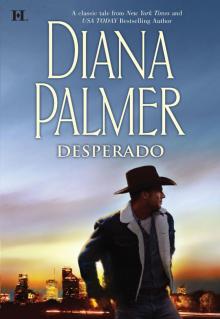 Desperado
Desperado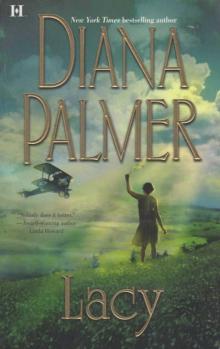 Lacy
Lacy The Winter Man
The Winter Man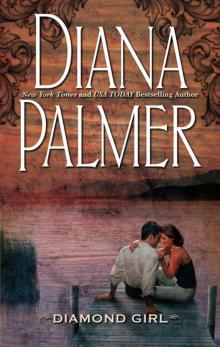 Diamond Girl
Diamond Girl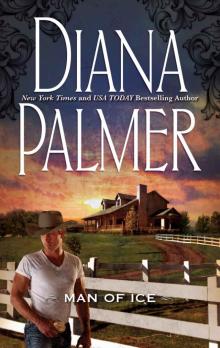 Man of Ice
Man of Ice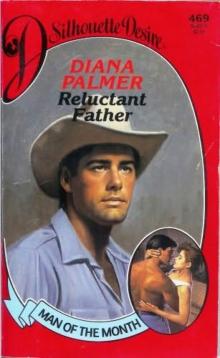 Reluctant Father
Reluctant Father Christmas with My Cowboy
Christmas with My Cowboy Love with a Long, Tall Texan
Love with a Long, Tall Texan Wyoming Bold wm-3
Wyoming Bold wm-3 King's Ransom
King's Ransom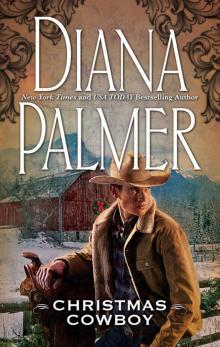 Christmas Cowboy
Christmas Cowboy Heart of Ice
Heart of Ice Fearless
Fearless Long, Tall Texans_Hank
Long, Tall Texans_Hank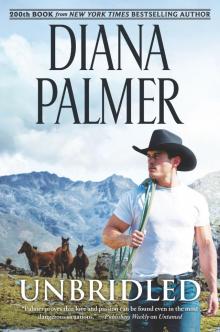 Unbridled
Unbridled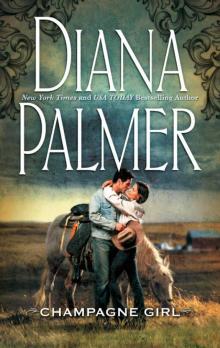 Champagne Girl
Champagne Girl The Greatest Gift
The Greatest Gift Storm Over the Lake
Storm Over the Lake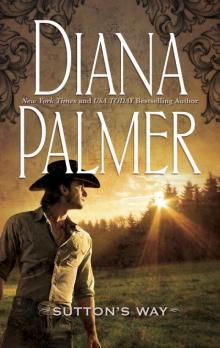 Sutton's Way
Sutton's Way Lionhearted
Lionhearted Renegade
Renegade Betrayed by Love
Betrayed by Love Dream's End
Dream's End All That Glitters
All That Glitters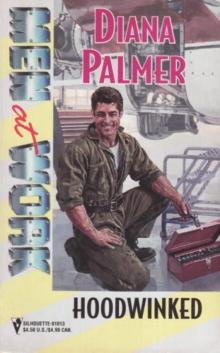 Hoodwinked
Hoodwinked Soldier of Fortune
Soldier of Fortune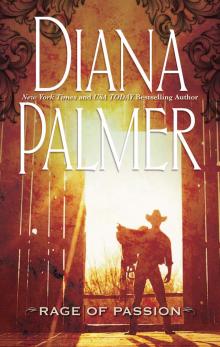 Rage of Passion
Rage of Passion Winter Roses
Winter Roses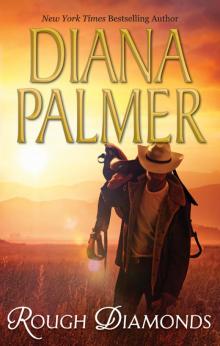 Rough Diamonds: Wyoming ToughDiamond in the Rough
Rough Diamonds: Wyoming ToughDiamond in the Rough Protector
Protector Emmett
Emmett True Blue
True Blue The Tender Stranger
The Tender Stranger Lone Star Winter
Lone Star Winter Man in Control
Man in Control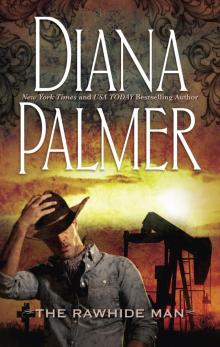 The Rawhide Man
The Rawhide Man Untamed
Untamed Midnight Rider
Midnight Rider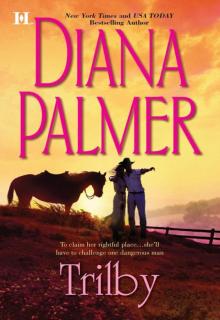 Trilby
Trilby A Long Tall Texan Summer
A Long Tall Texan Summer Tangled Destinies
Tangled Destinies LovePlay
LovePlay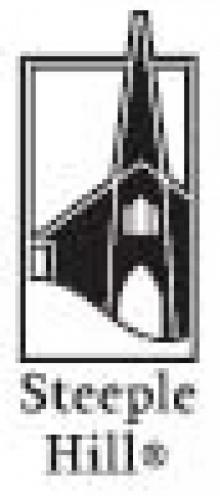 Blind Promises
Blind Promises Carrera's Bride
Carrera's Bride Calamity Mum
Calamity Mum Long, Tall Texan Legacy
Long, Tall Texan Legacy Bound by Honor
Bound by Honor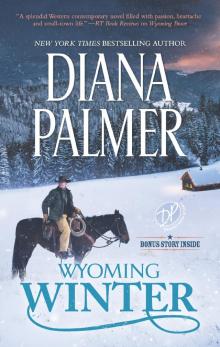 Wyoming Winter--A Small-Town Christmas Romance
Wyoming Winter--A Small-Town Christmas Romance Mystery Man
Mystery Man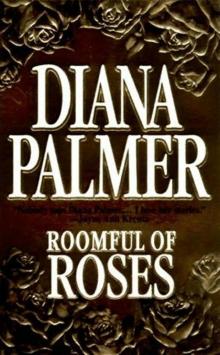 Roomful of Roses
Roomful of Roses Defender
Defender Bound by a Promise
Bound by a Promise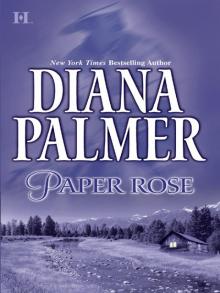 Paper Rose
Paper Rose If Winter Comes
If Winter Comes Circle of Gold
Circle of Gold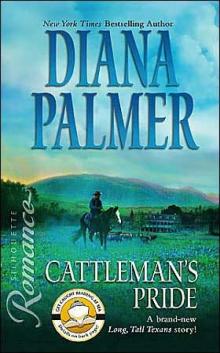 Cattleman's Pride
Cattleman's Pride The Texas Ranger
The Texas Ranger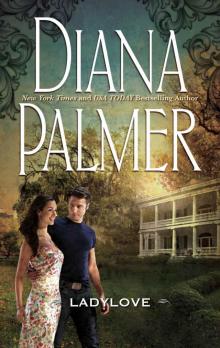 Lady Love
Lady Love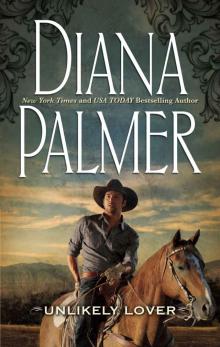 Unlikely Lover
Unlikely Lover A Man of Means
A Man of Means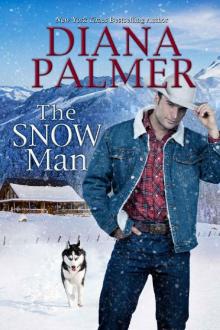 The Snow Man
The Snow Man The Case of the Missing Secretary
The Case of the Missing Secretary Harden
Harden Tough to Tame
Tough to Tame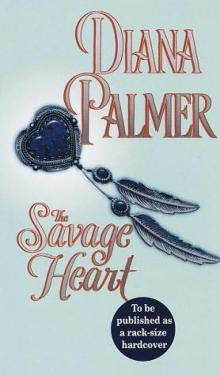 The Savage Heart
The Savage Heart